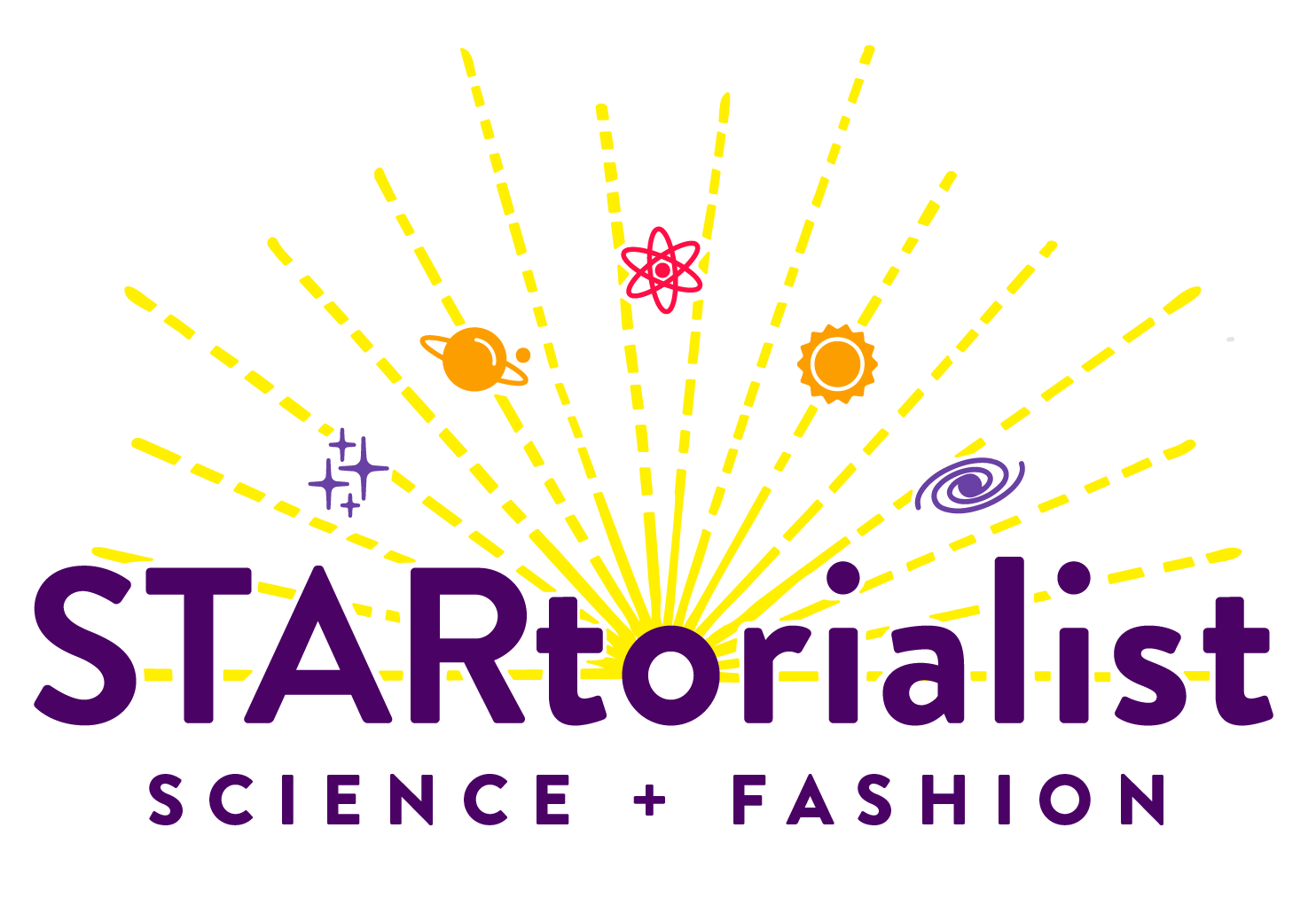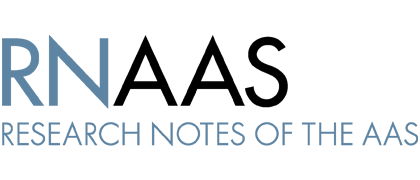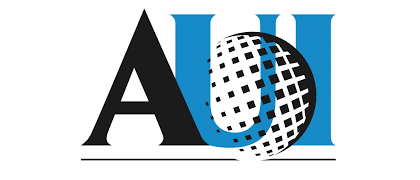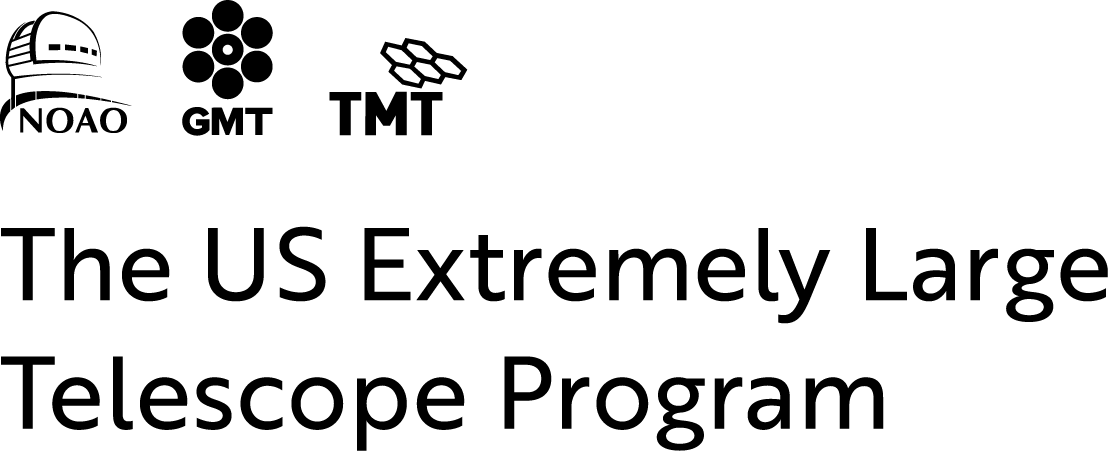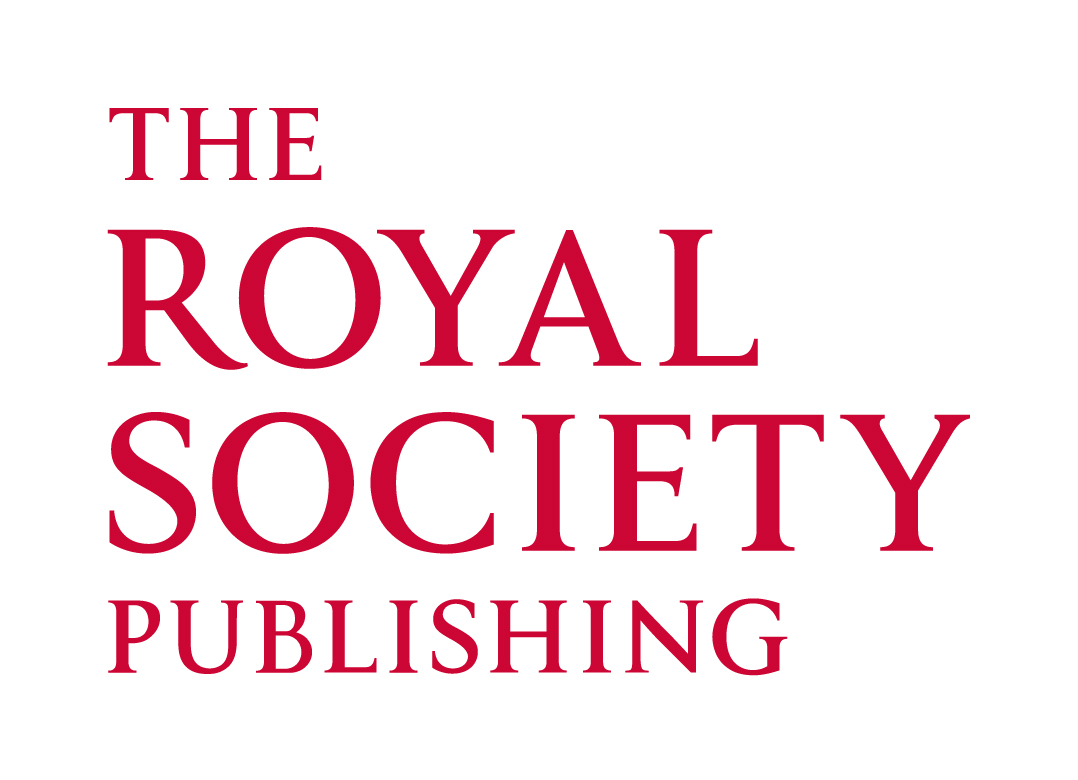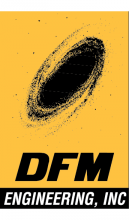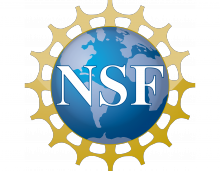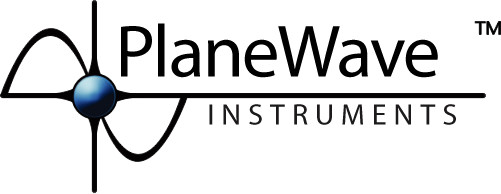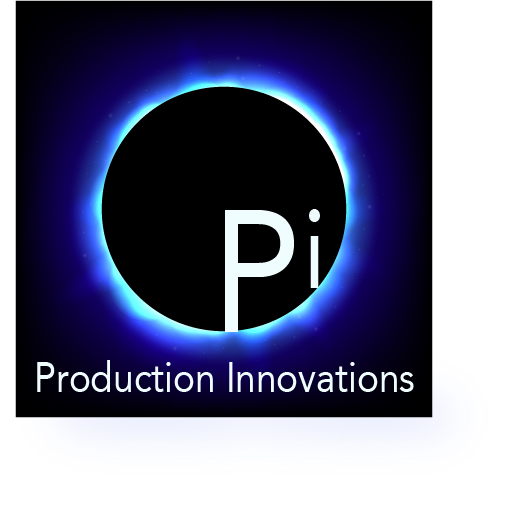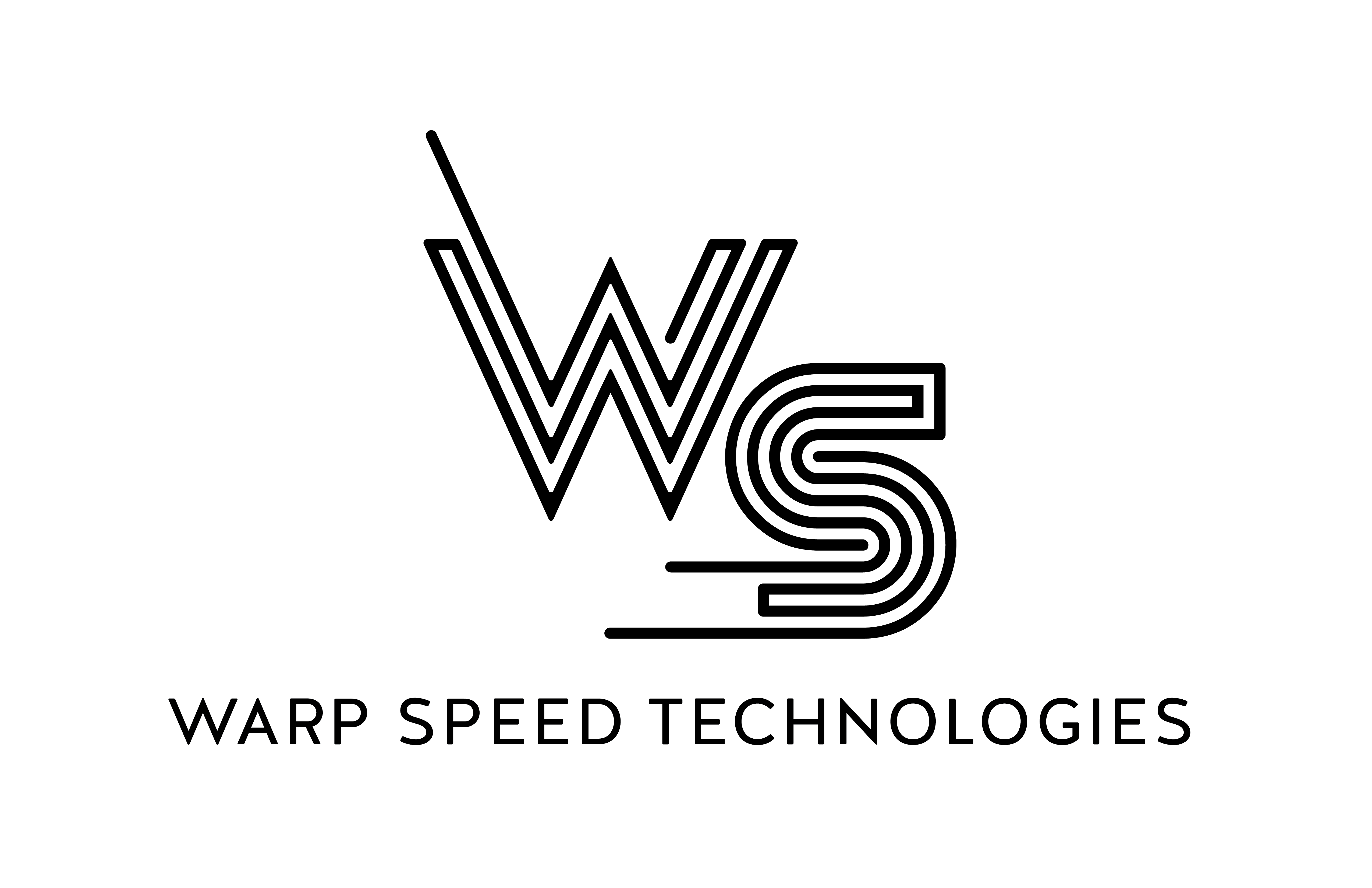235th meeting
Register


Workshops | Events | Contributions
The workshops and events listed on this page are only those that require or allow registration through the meeting registration form. There may be other workshops and events during the meeting that are not listed here. See the online program for information on all events.
All workshop organizers, moderators, and attendees must be registered for the AAS meeting at which the workshop will take place. Those attending a workshop only and not the rest of the AAS meeting will be charged a one-day registration fee in addition to the individual workshop fee.
Workshops
JWST Proposal Planning Workshop
Friday, 3 January | 8:30 am – 5:00 pm
Organizer: Anthony Roman, Space Telescope Science Institute
Fee: $30
The James Webb Space Telescope (JWST), set to launch in 2021, will revolutionize our understanding of the universe with its unprecedented sensitivity and angular resolution at infrared wavelengths. This workshop will provide an overview of the JWST proposal and planning tools with a specific focus on the Exposure Time Calculator (ETC) and the Astronomer’s Proposal Tool (APT). In addition to seeing guided demonstrations, participants will take part in hands-on sessions and exercises to plan observations for selected science cases and observing modes. At the end of the workshop, a participant will be ready to use the JWST proposal tools to develop and submit a General Observer proposal. Lunch will be provided. Disclaimer: The registration fee for this workshop is assessed in accordance with AAS policies on workshops. The fee is not required by NASA.
AAS Astronomy Ambassadors Workshop: Techniques & Resources for Effective Public Engagement (2 days)
Friday & Saturday, 3-4 January | 8:30 am – 5:30 pm
Organizer: Gina Brissenden, American Astronomical Society
No Fee: Application Required DEADLINE PASSED; APPLICATIONS CLOSED!
We invite graduate students, postdocs, relatively new faculty, and advanced undergrads to join the AAS Astronomy Ambassadors program. The program is offering a two-day workshop at the 235th AAS meeting in Honolulu, Hawaii, during which you will:
- Learn strategies and techniques to improve your presentation skills;
- Learn to communicate more effectively with public and school audiences;
- Learn to reach your audiences with personal stories, hands-on activities, and jargon-free language;
- Learn to find outreach opportunities and establish ongoing partnerships with schools, museums, parks, and/or community centers in your area;
- Gain access to a menu of outreach resources that work in a variety of settings;
- Become part of an active community of astronomers who do outreach (with mentorship available);
- Have up to two nights’ lodging and two days’ lunches provided.
The workshop includes presenters from the American Astronomical Society, the Astronomical Society of the Pacific, and the Portal to the Public/Institute for Learning Innovation. Participants will include graduate students, postdocs, and new faculty in their first two years after receipt of their PhD, and advanced undergraduates doing research and committed to continuing in astronomy. Early-career astronomers who are interested in doing outreach, but who haven’t done much yet, are encouraged to apply; we will have sessions appropriate for both those who have done some outreach already and those just starting their outreach adventures. We especially want to encourage the participation of members of groups that are underrepresented in science. If you’re interested and are not yet a member of the AAS, you may submit a membership application at the same time you apply for the workshop and register for the meeting.
The 2nd AAS Chandra/CIAO Workshop (2 days)
Friday & Saturday, 3-4 January | 9:00 am – 6:00 pm
Organizer: Antonella Fruscione, Harvard-Smithsonian, CfA
Fee: $40
Chandra/CIAO workshops are aimed at helping users, especially graduate students, post-doctoral fellows and early-career researcher to work with Chandra data and the Chandra Interactive Analysis of Observations (CIAO) software. Several workshops have been previously organized at the Chandra X-Ray Center (see http://cxc.harvard.edu/ciao/workshop/ for more details) and this is the second time a CIAO workshop is organized in connection with the AAS. The workshop will feature talks on introductory and advanced X-ray data analysis, statistics, and topics in Chandra calibration. The workshop will also include hands-on sessions where students can practice X-ray data analysis following a workbook of CIAO exercises or perform their own analysis with members of the CIAO team ready to assist. Participants are required to bring their own laptop.
LightSound: Learn to Build a Sonification Tool to Make Your Classes and Outreach Events More Inclusive (2 days)
Friday & Saturday, 3-4 January | 9:00 am – 6:00 pm
Organizer: Allyson Bieryla, Harvard University
Fee: $50
LightSound is a sonification (the process of turning data into sound) tool that uses Arduino technology to convert light to sound. It was originally developed for the 2017 Great American Solar Eclipse as a tool for the blind and visually impaired community to experience a solar eclipse. The device uses a high dynamic range light sensor and outputs sound based on the intensity of the light. It can also connect to a computer so that data can be recorded for analysis or sonification at a later time. Detailed instructions to build the LightSound device and all necessary code to run and plot data are available for download online. In this workshop, you will be guided through the process of building your own LightSound device and learning to adapt your teaching/outreach plans to use the LightSound with the intent of making them more inclusive. Sonification is not only beneficial to the blind and visually impaired community but to all non-visual learners. We are beginning to prepare communities across the United States for the next total solar eclipse in 2024. During the 2019 South American eclipse, 20 LightSound devices were distributed along the eclipse path of totality to make the experience more inclusive to all people [1]. We aim to provide this tool to as many communities, schools and institutions as possible that are planning to host events during the 2024 solar eclipse. We have developed lesson plans which can be applied to a classroom, lab setting or outreach event to teach basic astronomy concepts to children and adults, grade school learners and university students. Day 1: Build your own LightSound. Each person will be guided through the process of building their own LightSound device. All the materials will be provided to you. No previous experience is required. Day 2: Learn to use the LightSound in your lesson plans (or ours). We will demonstrate how to use the LightSound in a classroom or lab setting. There will be time for discussion and future development. Please bring a laptop if you would like to setup your device. Not required. [1] LightSound- http://astrolab.fas.harvard.edu/LightSound-IAU100.html
Introduction to Software Carpentry
Saturday, 4 January | 8:00 am – 5:00 pm
Organizer: Rodolfo Montez, Smithsonian Astrophysical Observatory
Fee: $50
Computing is now an integral part of every aspect of astronomy and astrophysics, but most scientists are never taught how to build, use, validate, and share software. As a result, many spend hours or days doing things badly that could be done well in just a few minutes. The goal of the Software Carpentry Workshop is to change that. The tools presented at this abbreviated workshop will enable astronomers to spend less time wrestling with software and more time doing useful research. Furthermore, good quality code will make their science results easier to confirm and update. The Software Carpentry Workshop at the winter AAS consists of short tutorials alternating with hands-on practical exercises and will cover the core software skills needed to construct and use software in astronomy. The tutorials will be comprised of shell programming, basic python programming, and an introduction to version control with git. The workshop will be run by certified instructors and a team of helpers. The course is aimed at astronomers at all stages of their education and careers who wish to learn computational tools to increase the reproducibility and efficiency of their work. Participants should have some knowledge of programming (not necessarily Python) and have some familiarity with the shell command line (i.e., navigating directories on the shell command line). Specific knowledge of Python and Git are not required. Participants will be required to bring laptops and to install software in advance of the workshop. A group list will be compiled approximately one month prior to the workshop to distribute software requirements and collaborative troubleshooting. Workshop participants are also encouraged to participate in the Hack Day to apply their new skills. More information on the Software Carpentry project can be found at http://software-carpentry.org.
Using Python and Astropy for Astronomical Data Analysis
Saturday, 4 January | 9:00 am – 5:30 pm
Organizer: Kelle Cruz, Hunter College/CUNY & AMNH
Fee: $75
This workshop will cover the use of Python tools for astronomical data analysis and visualization, with the focus primarily on tools in the Astropy library and its affiliated packages. The goal is to introduce participants to the variety of tools which are available inside the Astropy library and to provide ample hands-on time during which participants will explore the science analysis capabilities which the greater Python environment and community provide. The format will be very interactive and include short presentations followed by instructor-guided tutorials where participants will use the tools be able to ask questions in the company of expert users and developers. Topics will include user configuration and conda environments; units, quantities, and constants; coordinates; FITS, ASCII, and Astropy tables; models; WCS and images; and point-source photometry. Finally, we will describe the various ways to get help from the Astropy community and ways to get involved with the Astropy Project.
Everything You Needed to Know about JWST Exoplanet Transit Data: How to Plan, Reduce, and Fit Your Data with the Exoplanet Characterization Toolkit
Saturday, 4 January | 9:00 am – 1:00 pm
Organizer: Julia Fowler, Space Telescope Science Institute
Fee: $35
The JWST Cycle 1 Call for Proposals is scheduled for release in January 2020 and proposals will be due four months later. Proposers will have a range of experience, but for many this will be their first encounter with JWST instruments and modes. Planning and analyzing time-series observations of transiting exoplanets and brown dwarfs can be particularly challenging, but has been made much easier with the development of the Exoplanet Characterization ToolKit. ExoCTK is a Python package and web interface that streamlines observation planning, data reduction, and data analysis for time-series observations and exoplanet atmospheric characterization. We have built, collected, and curated a toolkit with a single interface as well as a set of standards for tools that range from time-series observation planning to light curve fitting and atmospheric retrievals. At this half-day workshop, we will present an overview of ExoCTK tools and guidelines for contributions, walk attendees through an extended example (including how to plan your observations and what to do once your data arrive), and wrap up with a Q&A session where attendees can ask specific questions about their proposal ideas.
Improving Your Teaching: Applications of Evidence Based Practices for Astronomy Education
Saturday, 4 January | 9:00 am – 4:00 pm
Organizer: Sanlyn Buxner, University of Arizona & Planetary Science Institute
Fee: $35
Join the editors and authors of the new AAS IoP books on Astronomy Education (Volume 1: Evidence Based Instruction for Introductory Courses and Volume 2: Best Practices for Online Learning Environments) for this one-day interactive workshop ahead of the AAS winter meeting. This will be an opportunity to think critically about teaching and learning and to receive support from experts on student-centered learning to improve your teaching methods and materials. The workshop will run from 9:00 am to 4:00 pm and include a networking lunch. During each portion, you will work with experts in the field of astronomy education and receive support for planning your own instruction. All participants will receive additional resources for learning more about topics and materials for instruction. The morning session will lay the foundation for understanding how people learn, backward design, how to access and use pre-made curricular resources for your teaching, and considerations for inclusion and accessibility. For the afternoon session, participants will have the chance to work directly with authors and colleagues to better understand and use existing tools and innovations in your astronomy teaching. Special topics will include: 1) Using citizen science in your classes 2) Virtual reality and virtual worlds in instruction 3) Development and use of assessments 4) Implementation of Lecture-Tutorials for Astronomy 5) Considerations for teaching at a community college 6) Integrating and leveraging social and new media for instruction 7) Backwards Design and course development 9) Authentic astronomy research experiences for the classroom 10) Using the AAS World Wide Telescope 11) Creating your teaching philosophy and teaching portfolio Graduate students and those not teaching yet are invited to attend to work on future instructional materials and job application materials. For instructors already teaching, bring your course materials to work on and review! We encourage participants to bring a laptop or tablet to engage in different parts of the workshop. We especially encourage graduate students, new instructors, and community college faculty to join us. We are committed to supporting the participation of everyone who is interested in attending. Please inquire about funding to defray the cost of the workshop to buxner@email.arizona.edu. Schedule for the Day: Morning Session: Introduction to how people learn, basics of learner-centered teaching, resources for teaching Noon: Networking lunch Afternoon Session: Rotating sessions to work with authors on up to four special topics We would like to thank the AAS, AAS publishing, and IoP for their support of this workshop.
CubeSat Astronomy in the 2020s
Saturday, 4 January | 9:00 am – 5:00 pm
Organizers: Russell Genet, California Polytechnic State University; Mary Knapp, Massachusetts Institute of Technology
Fee: $35
Thanks to NASA’s support, there are an increasing number of CubeSat astronomical research telescopes in orbit or under development. Over the coming decade, CubeSat astronomical research telescopes—as a result of likely advances in technology, commercial quantity production, and lower launch costs—should help provide an increasingly synergistic balance between large and small space telescopes similar to what has already been achieved between large and small ground-based robotic telescopes. Numerous, low cost CubeSat telescopes could, for instance, not only enhance research opportunities for professional astronomers and their graduate students, but they could also open up research opportunities to undergraduate students and citizen scientists. Technology advances over the next decade could provide totally autonomous CubeSat telescope operation, extend their wavelength coverage to the infrared and soft X-ray, and provide larger apertures. There will be four 90-minute sessions consisting of five 15-minute PowerPoint talks followed by a 15-minute panel discussions: (1) Astronomy CubeSats in Orbit, (2) Astronomy CubeSats Under Development, (3) Future Expansion to Student and Citizen Science Research, and (4) Future Advances in CubeSat Telescope Technology. There will also be two half-hour poster sessions with refreshments. While all 20 invited speaker slots have been filled, contributed posters are still welcome; just contact Russ Genet.day, January 4, 2020, on the first “workshop” day of the meeting, immediately followed that evening by the opening reception.
Collective Blueprints for the Ideal Astronomy Mentor
Saturday, 4 January | 10:00 am – 11:30 am
Organizer: Nicole Cabrera Salazar, Movement Consulting
Fee: $35
Mentoring junior astronomers is part of the typical academic experience, yet we are expected to jump into this important role without any training. While most of us have very good intentions, the fact is that we often let our mentees down, especially if they are from one or more marginalized groups. Implicit and explicit bias can further strain our relationships with mentees, leading to disillusionment, burnout, and eventually attrition. This workshop aims to empower astronomers at any career level who are committed to being an excellent mentor to marginalized scientists. Participants will learn principles from Indigenous collectives and how to apply them to their own mentoring, as well as how to foster a safe environment in which their mentees can thrive. This workshop will be facilitated by Dra. Nicole Cabrera Salazar (Movement Consulting) and Professor Jorge Moreno (Pomona College) with the support of the AAS Committee on the Status of Minorities.
Proposal Writing Workshop: Using ROSES as a Template
Saturday, 4 January | 10:00 am – 5:00 pm
Organizer: Christina Richey, NASA JPL
Fee: $35
The success of scientists depends upon their ability to obtain funding. One of the largest challenges is to create strong proposals. Using Research Opportunities in Space and Earth Sciences (ROSES) from NASA as a template, this workshop will focus on teaching the audience key points to communicating science through successful proposal writing. As a result of this session, participants will be able to understand the proposal writing, reviewing, and selection process for federally funded research. This will also help those who have previously submitted proposals improve their performance. How to understand one’s values and maintain those throughout this process will also be focused on. Story tellers will add unique and important lessons learned to the session.
Astronomy Communication and Science Engagement with Religious Publics
Saturday, 4 January | 12:30 pm – 4:00 pm
Organizer: Jennifer Wiseman, NASA
Fee: $10
This workshop will assist attendees interested in building inclusion in the field of astronomy, and who seek to better understand potential tensions at the intersections of science and culture, including religion, in classrooms, laboratories, social media, policy discussions, or public settings. An individual’s worldview, including their religious beliefs and cultural background, can be a major element of their personal identity, and informs their sense of belonging in scientific contexts. Though faith is often perceived as a source of tension around science and technology topics, national polls suggest that most US adults express an interest in and enthusiasm for science and technology, and roughly ¾ claim a religious identity. Yet faith identity and spirituality are not always acknowledged as an element of inclusion in STEM fields, including astronomy. A recognition and respect of the importance of this aspect of people’s lives can be important for drawing and retaining highly capable people, including from underrepresented communities, into the discipline.Furthermore, debates within and beyond the astronomy community - on topics ranging from the site of the Thirty Meter Telescope, to the ethics of space exploration, to the potential for light pollution in the night sky from commercial satellites - highlight the need for thoughtful, socially responsive science engagement with diverse publics. Facilitators will lead participants through an overview of why it is important to consider culture, worldview and identity (including faith) in science engagement with students and broader public audiences. Participants will review and discuss strategies, examples, and best practices for constructive dialogue, including ideas shared from astronomers familiar with public engagement. The workshop will include moderated discussions and a small-group exercise to respond to a challenging question or scenario with peers. While the focus of the workshop is on engagement with religious publics around astronomy, the content is relevant and applicable to effective science education and communication with a broad range of audiences. This workshop was developed in a collaboration between the American Association for the Advancement of Science (AAAS) Dialogue on Science, Ethics, and Religion (DoSER) program and the AAAS Center for Public Engagement on Science and Technology.Refreshments will be provided.
Effectively Communicating Your Research: A Hands-On Workshop for Scientists and Engineers (Two half-day workshops)
Sunday & Monday, 5-6 January | 8:30 am – 12:30 pm
Organizer: Diane Frendak, American Astronomical Society & Kari Ann Frank, Northwestern University
Limited to 16 attendees for each workshop
Fee: $35
In this workshop, researchers learn and practice key tactics for communicating their research to a broader audience. The goals of the workshop are to increase awareness for the urgent need for excellent research communicators and to help scientists improve their own presentation skills. The program focuses on three important and basic components of communication: • Building confidence in all communication roles • Enhancing the clarity of the message • Forming a connection with any audience. The workshop is led by experts in science communication training. Michelle Paulsen is the co-founder and director of the Research Communication Training Program at Northwestern University, formerly known as RSG. She has led workshops and training sessions in education and science communication at many universities, scientific societies, and government agencies. Byron Stewart has facilitated dozens of theatre-based communication workshops and individual coaching sessions for a wide array of academic programs and organizations. He has provided job talk and tenure talk coaching to graduate students as well as faculty at various research institutions. This workshop is supported by the AAS Committee on Employment.
One-on-One Career Consultations (20-minute sessions)
Sunday, 5 January | 9:00 am – 6:00 pm
Monday, 6 January | 9:00 am – 6:00 pm
Tuesday, 7 January | 9:00 am – 6:00 pm
Wednesday, 8 January | 9:00 am – 4:30 pm
Organizer: Diane Frendak, American Astronomical Society
Fee: $20
Alaina Levine of Quantum Success Solutions, a science careers consultant, science writer, professional speaker, and comedian, will meet individually with attendees to provide confidential, customized career advice for people from student through mid-career. Attendees are encouraged to bring CV/résumé, cover letter, or any other item you wish to have evaluated. Throughout the meeting in 20 minutes sessions; check in at the AAS Resource and Career Center ($20 per session).
Using Python to Search NASA's Astrophysics Archives
Sunday, 5 January | 9:00 am – 11:00 am
Organizer: Tom Donaldson, Space Telescope Science Institute
Fee: $15
NASA's Astrophysics Archives preserve many terabytes of multiwavelength images, catalogs, and spectra. While many astronomers are familiar with the web tools that are convenient for searching and visualizing these data, this workshop will introduce participants to the command-line data access tools that are becoming increasingly popular. We will use python to work through science scenarios that combine multiwavelength data from the HEASEARC, IRSA, NED, and MAST. Workshop organizers will also be available to help participants access NASA data sets for use on their own projects.
Teaching for Equity
Sunday, 5 January | 9:00 am – 1:00 pm
Organizer: Jessica Fielder, San Francisco State University & Kim Coble, San Francisco State University
Fee: $10
This workshop is aimed at instructors at any level who want to create or further develop learning environments that are inclusive, supportive, and rigorous; where diverse perspectives are represented; and students and faculty can thrive. Topics addressed are drawn from the Inclusive Astronomy recommendations for teaching and include: (1) identifying the strengths, areas for growth, needs, and resources our students bring to the classroom, including cultural capital (2) techniques for understanding and influencing classroom climate and dynamics, and (3) creating an affirming and accessible physical space. Workshop attendees who wish to apply these topics in other contexts (e.g., faculty/workgroup meetings, mentoring, etc.) are also welcome. We will learn from each other’s teaching and learning experiences as well as literature, and discuss structural and pedagogical practices that can help us advance toward these goals. By the end of the workshop, participants will identify concrete changes they can make in their courses or departments and create an implementation and assessment plan.
Self Care as an Act of Resistance for People of Color
Sunday, 5 January | 10:00 am – 11:30 am
Organizer: Nicole Cabrera Salazar, Movement Consulting & Lia Corrales, University of Michigan
Fee: $25
Academia is tough, and those at the intersection of one or more marginalized identities may find it especially difficult to navigate "majority" academic environments. In this workshop, participants will discover tools for self-care tailored to their needs for success in academia. They will be able to view their cultural values as a source of strength in academia, learn about the seven different types of self-care, identify the activities that make them feel joyful, and learn to identify the mind traps that prevent them from prioritizing themselves over their work. This workshop will communicate vital information about the current state of toxic burnout culture in academia - which has a particularly negative impact for people of marginalized identities - as well as how to combat it. Identifying and countering this culture will allow participants to remain in academic spaces without sacrificing their cultures, thereby improving their inclusion and retention in majority spaces. This workshop will be led by Dra. Nicole Cabrera Salazar, CEO of Movement Consulting (https://www.movebold.ly/), with support from the AAS Committee for the Status of Minorities in Astronomy.
Making the Most of the AAS Worldwide Telescope
Sunday, 5 January | 1:00 pm – 2:00 pm
Organizer: Peter Williams, Center for Astrophysics | Harvard & Smithsonian
Fee: $15
The WorldWide Telescope (WWT) is the AAS’s official tool for visually exploring humanity’s scientific understanding of the Universe. The open-source software underlying WWT's visualization engine can power everything from interactive "live image" figures in journal articles, to exploratory data visualizations in Jupyter notebooks, to immersive custom websites, to professional-grade planetariums. This interactive tutorial will introduce attendees to the WWT software ecosystem in the context of its applications to research, education, and public outreach.
New K-12 and Undergraduate Educational Resources from the Sloan Digital Sky Survey
Monday, 6 January | 1:00 pm – 5:00 pm
Organizer: Britt Lundgren, University of North Carolina Asheville
Fee: $35
This workshop will provide an introduction to new bilingual, hands-on, and computational educational resources from the Sloan Digital Sky Survey (SDSS). The 4-hour workshop will be divided into two parts of equal length, with the first half focusing on educational resources suitable for students in grades K-12, and the second half focusing on computational activities designed for undergraduate astronomy labs. Participants are invited to attend either or both parts of the workshop, depending on their interests and needs. Part 1: K-12 Activities. The first half of the workshop will showcase a new hands-on activity designed for English- and Spanish-speaking K-12 audiences. The activity pairs retired SDSS spectroscopic plug plates and the SDSS SkyServer online data portal to teach concepts ranging from constellations to redshift. Upon request, attending participants will be provided with their own unique SDSS plate to take back to their home institutions. We will also provide a tour of new and updated pre-college educational curricula and online resources that are available in English and Spanish. Part 2: Computational Undergraduate Labs: The second half of the workshop will focus on computational activities designed for undergraduate astronomy labs. We will demonstrate how the framework of SciServer.org, which is freely accessible to students and the public, enables anyone with a web browser to quickly and easily analyze vast data sets like that of the SDSS in web-based Python notebooks. A new innovative set of computational astronomy activities for college-level students (both for non-majors and upper-level majors) will be demonstrated and made available to workshop participants.
Science Communication Through the Lens of Astrobites
Monday, 6 January | 10:00 am – 11:30 am
Organizer: Caitlin Doughty, New Mexico State University
Fee: $35
The ability to communicate science to the general public is a skill that must be honed through practice and critique. While many scientists are unquestionably experts in their subfields, this expertise does not necessarily translate into good communication with the public. With public distrust of science and scientists seemingly at an all-time high, our ability to convey the results of modern scientific research in an accessible way that emphasizes the most salient points is essential to keeping the public in-the-know and interested in supporting science through public policy. Astrobites, “the astro-ph reader’s digest”, is the combined work of an international collaboration of graduate students. Daily articles written by these students briefly summarize recent scientific works published on the arXiv, describing the details of the scientific investigation that was undertaken and the implications of the results. While the Astrobites project originally aimed to bring modern astronomical research to physics and astronomy undergraduate students, it has found a wider audience in members of the general public. Using the Astrobites article framework, this workshop will introduce audience members to accepted best practices in science communication. These exercises will include subjects such as learning to avoid jargon by identifying common problem words or phrases and creating more approachable alternatives and also learning to distill the aspects of a research study which are most interesting to public audiences, namely the results and implications, into a concise and high-impact format. In addition to being informed about modern techniques, attendees (undergraduate and graduate students, and early-career postdocs) will have the opportunity to examine examples of written science communication and analyze how successful they are. Through critiquing these examples, attendees will apply what they have learned and develop their own unique philosophy of science communication. Additionally, interested participants will have the chance to stay in communication with the Astrobites collaboration and submit guest articles to the site, further cementing the lessons of the workshop.
Rest and Workflow for Marginalized Scientists: How to Maintain Sustainable Success
Monday, 6 January | 10:00 am – 11:30 am
Organizer: Nicole Cabrera Salazar, Movement Consulting & Lia Corrales, University of Michigan
Fee: $25
Rest and Workflow for Marginalized Scientists: How to Maintain Sustainable Success With scientific research comes a large variety of tasks that often feel too overwhelming to accomplish, and it can be tempting to sacrifice rest in the name of getting things done. However, the literature shows that our brains function better when we incorporate rest, and the right workflow tools can make managing our projects even more effective. In this workshop, participants will discover tools to tackle all their research goals without burning out. This workshop aims to empower students and junior scientists, especially those from minoritized groups, with tools to tackle research tasks of all sizes, timelines, and priorities so that they can accomplish their academic goals with enough time for all the other important things in their lives. Participants will learn how to separate their work from their selves, schedule their workday, set daily and weekly goals, and use workflow tools to stay focused and motivated - all while practicing self-compassion. This workshop will be led by Dra. Nicole Cabrera Salazar, CEO of Movement Consulting (https://www.movebold.ly/), with support from the AAS Committee for the Status of Minorities in Astronomy.
MEMS Devices for Use in Ground and Space-Based Spectroscopy; Technology and Applications
Monday, 6 January | 1:00 pm – 5:00 pm
Organizer: Zoran Ninkov, Rochester Institute of Technology
Fee: $50
Micro-Electro-Mechanical Systems, or MEMS, is a technology that involves miniaturized mechanical, optical and electro-mechanical elements that are produced using the techniques of microelectronic fabrication. MEMS devices can have dimensions off less than one micron to several millimeters. MEMS devices can be simple structures using no moving parts, or systems of moving elements with integrated microelectronics. The integration of MEMS-based devices is certain to revolutionize future astronomical instrumentation. MEMS devices are already being utilized by astronomers, for example in adaptive optic (AO) systems and in multi-object spectroscopy systems (MOS). For MOS systems two mask systems are currently being used and further developed, namely the Digital Micromirror Device (DMD) and the Micro-shutter Array (MSA) are both rapidly reconfigurable slit mask. Each of these MEMS devices are comprised of individually addressable elements acting as optical switches to selectively capture the spectra of target sources. MSAs have transmissive elements (microshutters) that are opened to selectively transmit light to a spectrograph. DMDs have reflective elements (micromirrors) that direct light either towards or away from a spectrograph. MSAs were selected for the James Webb Space Telescope’s NIRSpec instrument. DMD based MOS instruments have been successfully deployed on ground-based telescopes. Several projects plan to use DMDs for multi-object spectroscopy both from the ground and in space. The advantages of MEMS-based MOS include compact size, ability to rapidly generate new slit masks, grouping of adjacent elements to increase slit size, and high number of individual elements. This workshop seeks to bring together those involved in MEMS development for MOS, use, and integration into instruments. We are looking to understand the state of development in the field, learn from each other’s efforts, and develop partnerships to enhance the integration of such devices.
Machine Learning with astroML
Monday, 6 January | 1:00 pm – 5:00 pm
Organizer: Andrew Connolly, University of Washington; Brigitta Sipocz, University of Washington; & Željnko Ivezić, University of Washington
Fee: $35
This workshop will introduce the astronomical community to the 2nd edition of “Statistics, Data Mining, and Machine Learning in Astronomy” and the associated software package astroML. The goal is to introduce participants to a variety of statistical and machine learning tools available within the open source astroML library. The format will be interactive, including short presentations on different machine learning methodologies followed by instructor-guided, Jupyter notebook based tutorials. In these tutorial sessions participants will be able to try out the tools and to ask questions from expert users and developers. Our primary focus will be on the new material and applications in the 2nd edition of the book. These include: 1. Traditional machine learning techniques for density estimation 2. Approximate Bayesian computation, 3. Hierarchical Bayesian models 4. Autoencoders as tools for data compression 5. Deep learning and convolutional neural networks In each tutorial example applications will be based on astronomical use cases and data sets. At the end of the workshop we will present a roadmap for future developments in astroML (http://astroml.org). This workshop is suitable for those with existing Python knowledge, including familiarity with the core packages in the numerical Python ecosystem such as numpy, scipy, scikit-learn, and matplotlib.
Hands-on Machine Learning for Astronomers: Artificial Intelligence for Big-Data Astronomy
Tuesday, 7 January | 1:00 pm – 5:00 pm
Organizers: Andreas Faisst, California Institute of Technology; Sinan Deger, Caltech/IPAC; Eliu Huerta Escudero, University of Illinois Urbana-Champaign; & Janice Lee, Caltech/IPAC
Fee: $35
Next-generation astronomical facilities will produce datasets whose volume and velocity will challenge traditional reduction, analysis, and visualization techniques. In order to start addressing these nascent problems in existing electromagnetic surveys, a number of astronomers are exploring the use of machine learning (ML) algorithms, obtaining very promising results in the context of large, incomplete, and heterogeneous datasets. In view of these developments, it has become apparent that ML-based data analytics will play a central role in next-generation surveys. We are hosting a hands-on workshop that brings together ML experts and astronomers to discuss, teach, and evaluate different ML techniques that are being applied in astronomy big-data analytics. We will explore the capabilities of ML algorithms for the classification and analysis of astronomical sources in large datasets. This includes also deriving statistical correlation between multiple parameters, data reduction tasks, and dimensionality-reduction of high-dimensional data for their study and visualization. Short introductory presentations by astronomers with ML expertise will illuminate the basic methods of ML algorithms and, with several use cases, how they can be applied to astronomical problems. Through hands-on tutorials, participants will get a basic understanding of ML algorithms to mine diverse datasets including IRSA, Spitzer, SDSS, and DES. These tutorials include data analysis as well as visualization use cases. The participants should not hesitate to bring their specific problems and datasets to which they want to apply ML techniques and discuss them with the experts. This workshop is targeting astronomers at any career-stage, who would like to apply ML methods to their current or future work. The participants should have a basic background in Python.
AMPlifying Your Majors’ Courses: From Unpacking to Problem-Solving
Tuesday, 7 January | 1:00 pm – 3:00 pm
Organizer: Colin Wallace, University of North Carolina, Chapel Hill
Fee: $35
For more than 15 years we have provided professional development experiences that focus on actively engaging college faculty in the successful implementation of research-validated instructional strategies to transform the teaching in their classrooms. The bulk of this prior work focuses on the teaching and learning of the general education introductory college-level astronomy course (commonly referred to as Astro 101). Recently, we have taken the research results, lessons learned and theoretical models that have informed our work on the teaching and learning of Astro 101 and applied them to the teaching of astronomy majors. Pilot efforts have created: (1) a new Think-Pair-Share curriculum shown to elevated the quantitative problem solving abilities of students by as much as two letter grades over the scores achieved by students in a traditionally taught course, and (2) a proto-type “Lecture-Tutorial” activity that helps astrophysics students reasoning about the relationships between O-type MS stars, Hydrogen alpha production, and galactic star formation rate. These new research-informed instructional strategies are at the foundation of the new Astrophysics Majors’ Project (AMP). Designed to systematically improve how we teach our courses for physics and astronomy majors, AMP is both unique and timely given the marked lack of research on majors’ courses and quantitative problem-solving. This workshop will facilitate an open discussion with participants on the learning outcomes, educational goals and norms for foundational courses and majors programs. Next faculty will work collaboratively to identify key topics, touchstone problems, and discipline skills with which students should engage. Lastly, we will introduce a generative framework that will guide participants in the development of instructional activities that faculty can use in their classrooms to achieve their educational goals and learning outcomes.
Hack Together Day
Wednesday, 8 January | 8:00 am – 7:00 pm
Organizer: James Davenport, University of Washington; Ellianna Schwab Abrahams, University of California at Berkeley; David W. Hogg, New York University; & Kelle Cruz, Hunter College/CUNY & AMNH
No Fee
Hack Together Day is a full-day workshop to work intensively on collaborative projects of interest to the Astronomical community. A wide variety of projects will be undertaken, spanning everything from software development to data exploration and analysis to creative outreach projects. Projects that take advantage of the unique gathering of enthusiasm and expertise at the Winter AAS Meeting are particularly encouraged. No hacking or programming experience is required; newcomers are extremely welcome! Project ideas and participants will be solicited before and during the meeting. Participants can lead or join any project, and should plan on focusing on accomplishing one, limited thing. In addition, we ask participants to commit to Hack Together Day for the entirety of the day.
Events
Student Orientation & Grad School Fair
Saturday, 4 January | 5:30 pm – 7:00 pm
Complimentary with meeting registration
Is Hawaii your first AAS Meeting? Are you looking for a Graduate or Research Experience for Undergraduate (REU) Program? Are you overwhelmed by the AAS Meeting? Or are you looking to connect with other students and faculty? Then the Student Orientation & Grad School Fair is for you! Visit with representatives from graduate schools and programs.
Opening Reception
Saturday, 4 January | 7:00 pm – 8:30 pm
Complimentary with meeting registration
Join your colleagues as we kick-off the 235th AAS meeting in Hawaii. This is a great time to network, socialize, eat, drink, and gear up for an exciting week. Turn in your raffle ticket for a chance to win prizes from local businesses and restaurants.
Closing Reception
Wednesday, 8 January | 5:30 pm – 7:00 pm
Complimentary with meeting registration
Join us one last time to say farewell to your colleagues until the next AAS meeting. Enter to win prizes from our exhibitors.
Contributions
Rodger Doxsey Travel Prize Fund
Contribute up to $100 to the Rodger Doxsey Travel Prize Fund
The Rodger Doxsey Travel Prize — established through the support of his father, John Doxsey, and other friends, family, and colleagues — provides graduate students or postdocs within one year of receiving or receipt of their PhD a monetary prize to enable the oral presentation of their dissertation research at a winter meeting of the AAS.
Purchase Carbon Offsets
Contribute up to $100 to the purchase carbon offsets
Over 90% of the carbon emissions from a typical scientific meeting come from participant travel to the meeting. We are encouraging participants to contribute up to $100 towards the purchase of carbon offsets, which will be used for a variety of third-party certified projects to reduce carbon emissions. Offsets are not a panacea, but will go a small way towards compensating for the meeting's carbon footprint.



